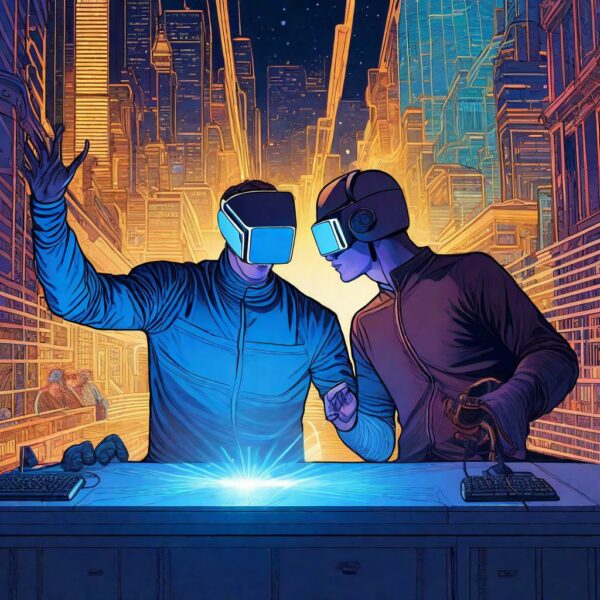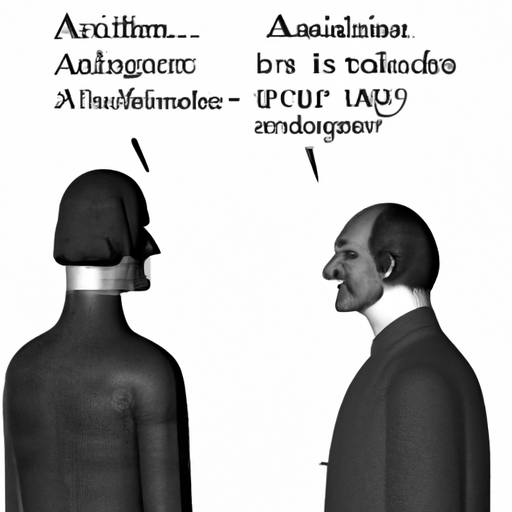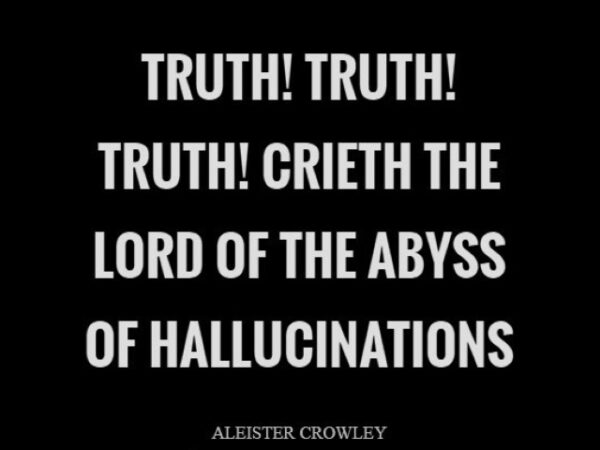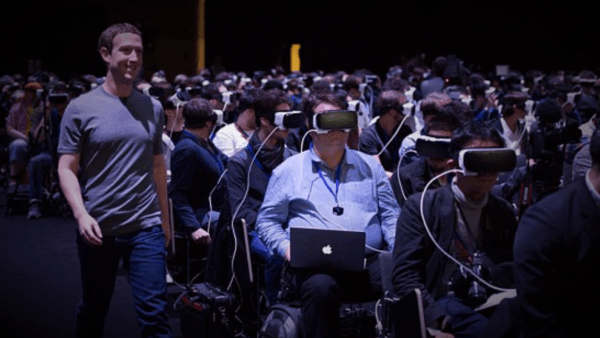The central thesis posits a transformative shift in human society driven by technological advancements, particularly in communication and information dissemination. In this vision, the traditional structures of governance, labor, and commerce undergo significant disruption as individuals gain unprecedented access to knowledge, resources, and opportunities.
At the heart of this transformation lies the empowerment of the individual, facilitated by the rise of the internet and digital technologies. These tools democratize access to information and enable individuals to engage in global networks, transcending geographical boundaries and traditional hierarchies. As a result, traditional gatekeepers of knowledge and power lose their monopolies, leading to a decentralization of authority and influence.
One key prediction is the erosion of traditional employment models in favor of a more flexible and decentralized labor market. With the proliferation of remote work, freelancing, and digital entrepreneurship, individuals gain greater autonomy over their careers and livelihoods. This trend towards individual sovereignty is further fueled by the emergence of cryptocurrencies and blockchain technology, which offer new avenues for financial autonomy and wealth accumulation outside the purview of centralized financial institutions.

Automated AI business protocols offer both advantages and disadvantages. On the positive side, these protocols enhance efficiency by automating routine tasks, reducing human error, and speeding up processes. They can provide round-the-clock availability, enhancing customer service and responsiveness. Additionally, AI-driven protocols can analyze vast datasets quickly, offering valuable insights for data-driven decision-making.
However, there are drawbacks. Over-reliance on automated protocols can lead to job displacement and a loss of the human touch in customer interactions. Concerns about data privacy and security arise as AI handles sensitive information. Furthermore, the development and maintenance of AI systems can be costly. Striking the right balance between automation and human involvement is crucial for reaping the benefits while addressing these challenges.
Moreover, the book anticipates a fundamental restructuring of political and economic systems, driven by the emergence of digital nation-states and virtual communities. As individuals increasingly conduct their lives and interactions online, traditional notions of citizenship and governance become fluid and adaptable. Virtual communities, bound by shared interests and ideologies rather than geographical proximity, challenge the authority of traditional nation-states and redefine notions of belonging and identity.

In the realm of economics, the book predicts the rise of a global market for personal information and digital assets, where individuals monetize their data and intellectual property. This shift towards a knowledge-based economy rewards creativity, innovation, and adaptability, empowering individuals to capitalize on their unique skills and insights.
“The Sovereign Individual, is an eyebrow raising and prophetic book, which paints a vision of a future characterized by individual empowerment, technological innovation, and decentralized networks. While the predictions outlined in the book may not have fully materialized in the exact manner envisioned, elements of its vision, such as the rise of digital entrepreneurship, remote work, and decentralized finance, have indeed become prominent features of contemporary society. As we continue to witness the evolution of possibilities for professions, and the complexities of the digital age, understanding and adapting to these underlying dynamics will be essential for individuals and societies alike.

The digital age has seen a substantial increase in remote workers, driven by technology’s progress. This development allows individuals to execute job duties from any location with internet access. Remote work provides various advantages, such as decreased commuting time, diminished expenses for employers, and flexible work schedules. Consequently, many organizations are adopting this novel approach and enjoying the benefits
The analysis in the Book “The Sovereign Individual” presented by Reese and Mogg, regarding the evolution of human society, provides many valuable insights, into the transformation from traditional family trades, to a modern economy driven by education and service-based industries. Their perspective highlights the seismic shift that has occurred, wherein access to education has become a critical factor in accessing employment opportunities and participating in economic prosperity.

Digital currency has experienced several periods of growth and decline, a pattern anticipated in “The Sovereign Individual.” However, its future and legitimacy remain uncertain, with fluctuations and inflation posing ongoing challenges.
In this interpretation, the emphasis on education as the gateway to economic success underscores the profound changes in the labor market and the broader societal landscape. Individuals who adapt to this new reality and invest in their education stand poised to benefit from the opportunities afforded by a service-driven economy. This perspective aligns with the notion of a meritocratic society, wherein individuals are rewarded based on their skills, knowledge, and qualifications.
Moreover, the assertion that this shift has ushered in a new era of prosperity and growth resonates with the narrative of progress and advancement often associated with modernity. Indeed, the expansion of service-based industries has led to increased productivity, innovation, and wealth creation, offering unprecedented opportunities for individuals to improve their standard of living and pursue their aspirations.

“So, you’re telling me that the world is gonna reset like a computer game and we’ll all start fresh? Sign me up! 😂 But seriously, the Great Reset sounds like a pretty big deal. It’s like the world is getting a total makeover and we’re gonna ditch the old, outdated systems and structures for something way cooler and more sustainable. 💪🌎 Think of it like a global game of “SimCity” where we get to build a brand new world from scratch! 😄 And with all the fancy tech and gadgets at our disposal, we’ll be living like it’s the future! 🚀💫 So, who’s ready to press the reset button and start this wild ride? 🎉👏”
However, it is essential to acknowledge the nuances and complexities inherent in this transformation. While education may serve as a pathway to success for some, systemic barriers such as socioeconomic inequality, access to quality education, and structural discrimination can impede upward mobility for others. Additionally, the rapid pace of technological change and globalization may exacerbate income inequality and job insecurity for certain segments of the population.

AI has made me obsolete, just as I thought I had finally mastered the art of making a living as a digital artist while lounging in my pajamas! 😱 Or maybe is should advertise my services as of now, as “Redundant Digital Artist”: “Creating art that’s not just aesthetically pleasing, but also redundant in the best possible way.”
In light of these considerations, while Reese and Mogg’s analysis provides valuable insights into the dynamics of societal evolution, it is crucial to approach the narrative with a critical lens, considering the broader socioeconomic context and the experiences of individuals who may be marginalized or disadvantaged within the prevailing economic system. Ultimately, a comprehensive understanding of the shifting dynamics of human society requires a multifaceted perspective that takes into account the intersecting factors shaping contemporary life.

“Hey there, party people! Let’s get this pear-fect pairing going on! 🍐👥 To truly grasp the ever-changing landscape of human society, we need to consider all the juicy factors that are intersecting and making things pop! 💥👀 It’s like pairing your pears with your peers – you gotta mix it up and get all the perspectives! 😜👯 So, let’s dive in and get this pear-ty started!”
While “The Sovereign Individual” presents a compelling narrative of technological empowerment and individual sovereignty, it’s crucial to acknowledge an alternative perspective on the trajectory of human societal evolution. This viewpoint suggests that the shift from traditional family trades and self-employed independence to a modern service-driven economy may not solely be the result of technological progress, but also the culmination of historical forces and systemic structures.

Hey there, workplace harassment? More like workplace hilarious-ment, am I right? 😂 Just kidding, it’s not funny at all! But seriously, workplace harassment is no laughing matter. It can be super hurtful and make the workplace a total buzzkill. So, let’s talk about the different types of harassment, like verbal harassment (ew, gross!), physical harassment (ouch!), and sexual harassment (double ouch!). And if you experience any of these, don’t be a silent sufferer, speak up and seek help! 💪 You can report it to HR or a supervisor, or tell a trusted colleague (just don’t tell them you’re a secret agent, that might be harassment too). And remember, documenting is key, like keeping a diary but for harassment (#harassmentdiaries). So, let’s all work together to make the workplace a safe and respectful place, or else we’ll all be stuck in a never-ending cycle of harassment (😱).
Indeed, the transition from agrarian societies to industrialized economies was marked by significant social upheaval and the concentration of wealth and power in the hands of a privileged few. The feudal system, with its hierarchical structures and serfdom, played a pivotal role in shaping the trajectory of human civilization, establishing patterns of labor exploitation and economic inequality that persist to this day.
Furthermore, the rise of capitalism and industrialization brought about profound changes in labor relations, with workers increasingly relegated to wage labor and alienated from the means of production. This shift, while driving economic growth and technological innovation, also perpetuated cycles of poverty and dependence, as individuals became increasingly reliant on employment within the burgeoning service sector.
Moreover, the commodification of education and the proliferation of student debt have further entrenched socioeconomic disparities, making access to higher education a privilege rather than a right. For many individuals, the pursuit of a “decent paid job” necessitates navigating a labyrinth of financial obstacles and systemic barriers, perpetuating cycles of indebtedness and economic precarity.
In light of these considerations, it’s essential to interrogate the underlying power structures and historical legacies that shape our contemporary socioeconomic landscape. While technology undoubtedly plays a transformative role in shaping human societies, it is not a panacea for systemic inequality and injustice. True progress requires a holistic approach that addresses the root causes of economic exploitation and empowers individuals to reclaim agency over their lives and livelihoods.

“Corporate Clod” – a bumbling bureaucrat who’s more interested in protecting their own behind than the well-being of their employees or the world at large. They’re a master of paper-pushing and political posturing, using their position to further their own agenda while stifling creativity and progress. Despite their fancy degree and supposed smarts, they’re hopelessly risk-averse and can’t think outside the box. They’re a self-serving, empathy-free zone who’s more likely to cause chaos than solve problems. Yay!
And with That, a Poem;
Echoes of Ancestry
In the whispers of time, we find a tale,
Of trades passed down like treasures frail.
From hand to hand, through generations old,
Craftsmanship woven in stories untold.
Once, under the sun’s warm embrace,
Families thrived in their chosen space.
Blacksmiths, carpenters, farmers true,
Rooted in soil, under skies of blue.
But winds of change swept through the land,
As industry rose with a mighty hand.
The call of progress, a siren’s song,
Led us away from where we belong.
Now, in the shadow of towering glass,
We toil away, as time slips past.
Education becomes our ticket to ride,
To join the ranks on the other side.
Yet the cost is high, the burden heavy,
As debts pile up, promises unsteady.
We trade our independence for a seat,
In the service industry’s crowded street.
Gone are the days of ancestral pride,
Replaced by a longing, deep inside.
For the freedom to shape our destiny,
To walk the path of our ancestry.
But amidst the chaos, a whisper remains,
Echoes of heritage, in silent refrains.
In every stroke of the pen, every word we write,
We honor the past, in the present’s light.
For though the road may twist and turn,
The flame of tradition will always burn.
And in the heart of every seeker,
Lies the spirit of the self-made speaker.
So let us not forget the path we’ve trod,
Nor the hands that shaped us, demigod.
For in the tapestry of human lore,
Our ancestry lives forevermore.








































 Subscribe to my channel
Subscribe to my channel






















